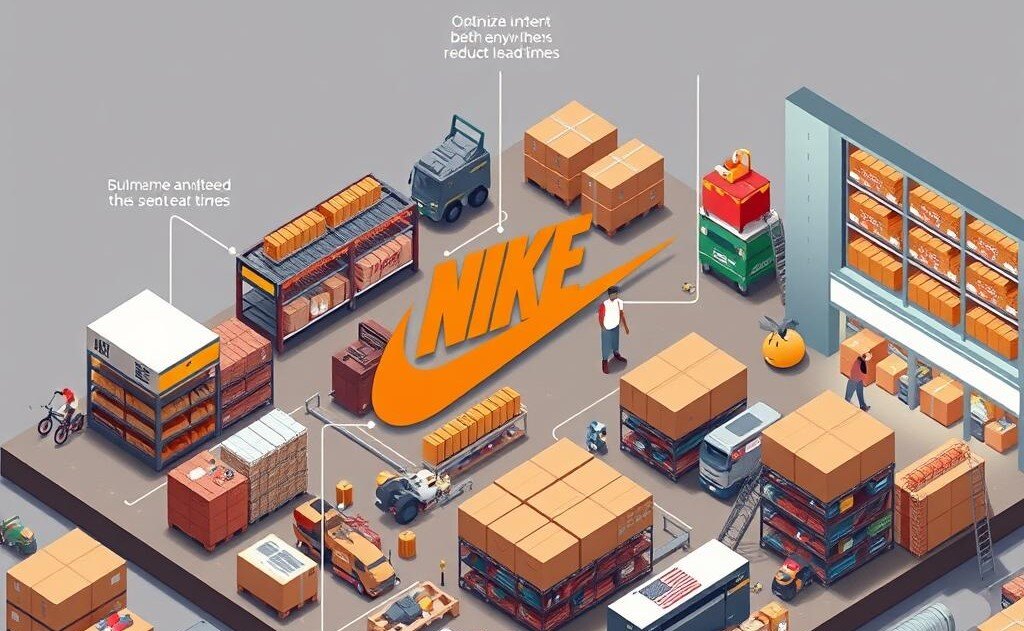Nike's Lean Journey: Transforming the Supply Chain
Lean Legends: Landmark Lessons in Operational Excellence with Leon from OpX
Today Operational Excellence (OpEx), Continuous Improvement (CI), and Lean methodologies have become critical for companies striving to stay competitive. This blog series dives into the defining moments and pivotal transformations that have shaped industries worldwide. In each post, we uncover the stories behind iconic implementations of Lean principles, where visionary leaders and relentless teams turned challenges into triumphs. These are not just case studies; they are blueprints for success, offering powerful insights into how operational excellence can drive extraordinary results. Join us as we explore the legends of Lean and the lessons they offer for today’s fast-paced world.

Blog 5: Nike's Lean Journey: Transforming
the Supply Chain
Supply chain management is critical to the success of global companies, and Nike's Lean transformation in the early 2000s provides valuable insights for businesses today. Confronted with a complex and inefficient supply
chain, Nike embraced Lean principles to reduce waste, improve product quality, and accelerate speed to market.
Nike's Lean initiative involved close collaboration with suppliers to implement practices that optimised inventory levels, reduced lead times, and enhanced production processes. This transformation not only improved Nike's
operational efficiency but also reinforced its position as a market leader.
By implementing Just-in-Time production, Nike was able to reduce inventory levels and respond more quickly to changing customer demand. Additionally, the company worked with suppliers to implement error-proofing and
other quality control measures, resulting in a significant reduction in product defects and returns.
The speed-to-market improvements were particularly impactful, as Nike could now quickly introduce new product lines and capitalise on emerging trends. This agility allowed the company to stay ahead of the competition and maintain its position as a leader in the sportswear industry.
In a world where supply chain agility is essential, Nike's story underscores the importance of Lean principles in achieving operational excellence and maintaining a competitive edge. The company's willingness to embrace
continuous improvement and eliminate waste throughout its supply chain has been a key driver of its ongoing success.
One of the key factors that contributed to Nike's Lean transformation was its ability to foster a culture of continuous improvement and employee empowerment. By involving frontline workers in the process of identifying and addressing waste, Nike was able to tap into the collective knowledge and expertise of its workforce. This not only led to more effective problem-solving but also helped to build a sense of ownership and accountability among employees, further strengthening the company's commitment to Lean principles.
Another critical aspect of Nike's Lean journey was its focus on supply chain collaboration. By working closely with its suppliers, Nike was able to align incentives, share best practices, and jointly develop solutions to complex
supply chain challenges. This collaborative approach not only improved the efficiency of the supply chain but also strengthened the relationships between Nike and its partners, leading to greater agility and responsiveness in the
face of changing market conditions.





